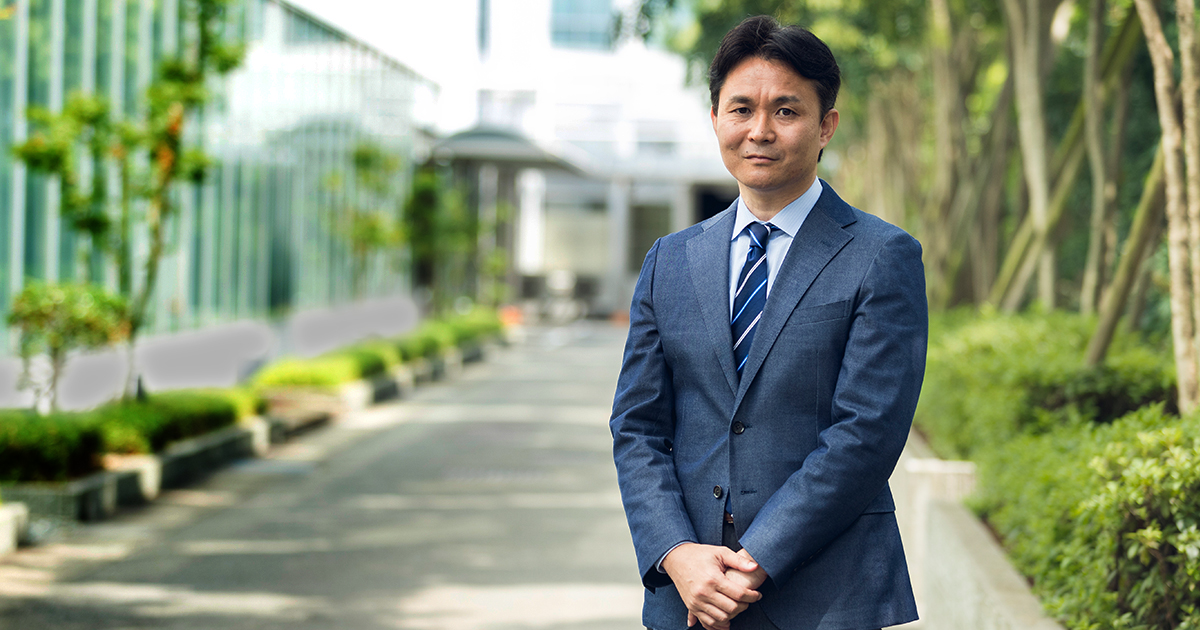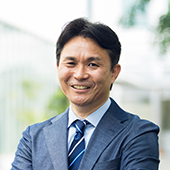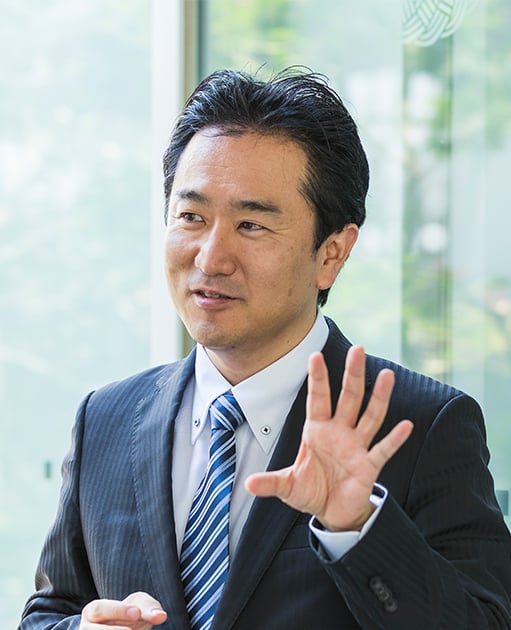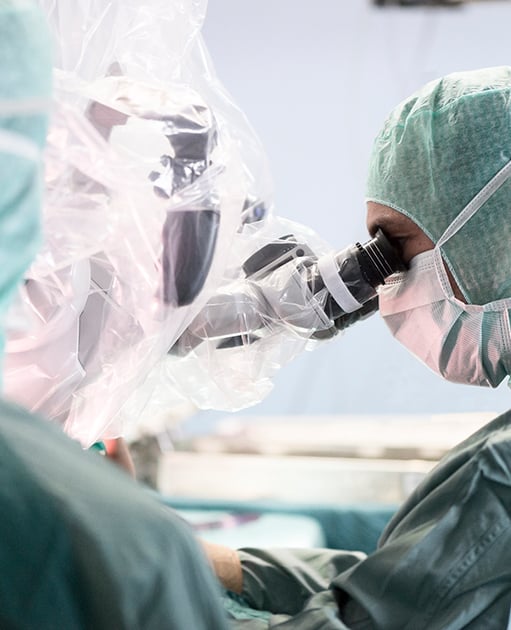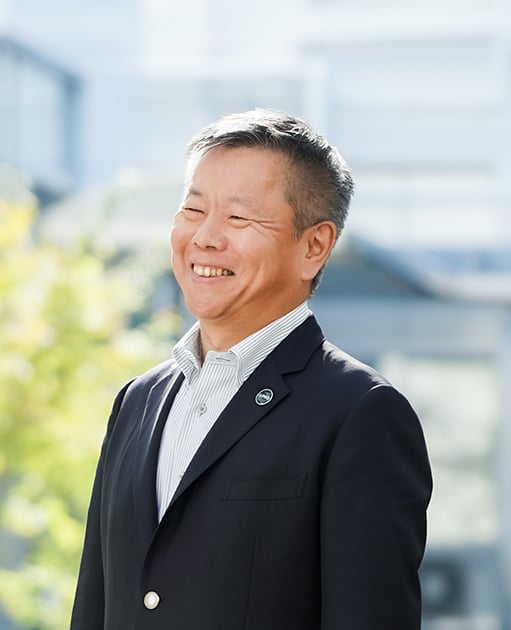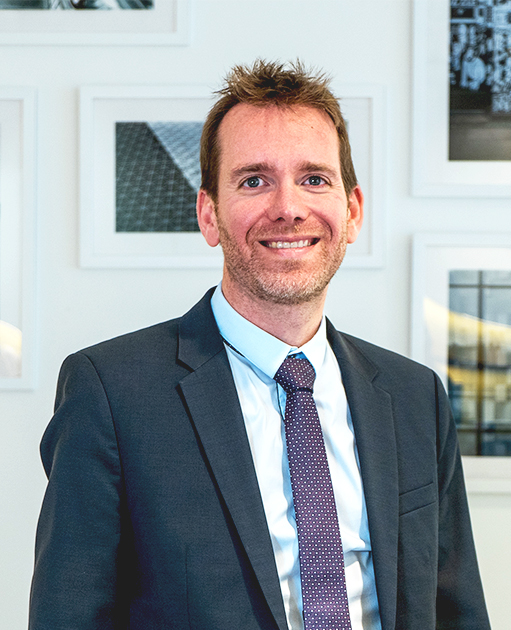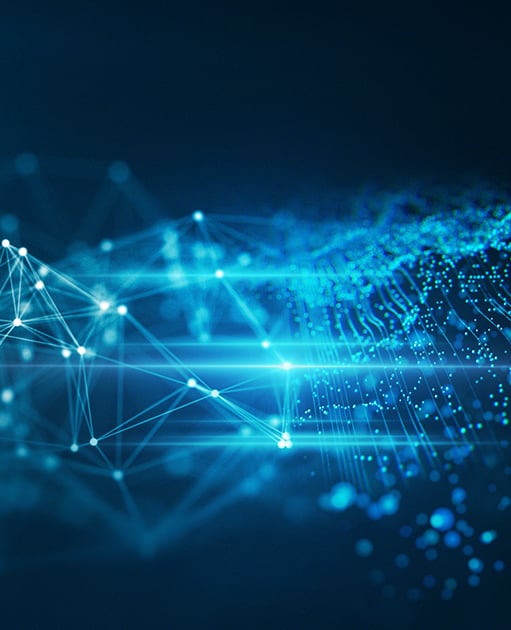The world of intelligent surveillance is becoming more and more important as social unrest spreads due to political changes and the new COVID-19 virus. What is the current state of the market, and what is i-PRO's overseas strategy? We asked Norio Hitsuishi, executive officer in charge of overseas sales in the i-PRO security business division, who has long experience in Panasonic's overseas sales companies and is committed to growth in the global market.
China, a surveillance society, France, which values privacy....Different intelligent surveillance needs in the regions
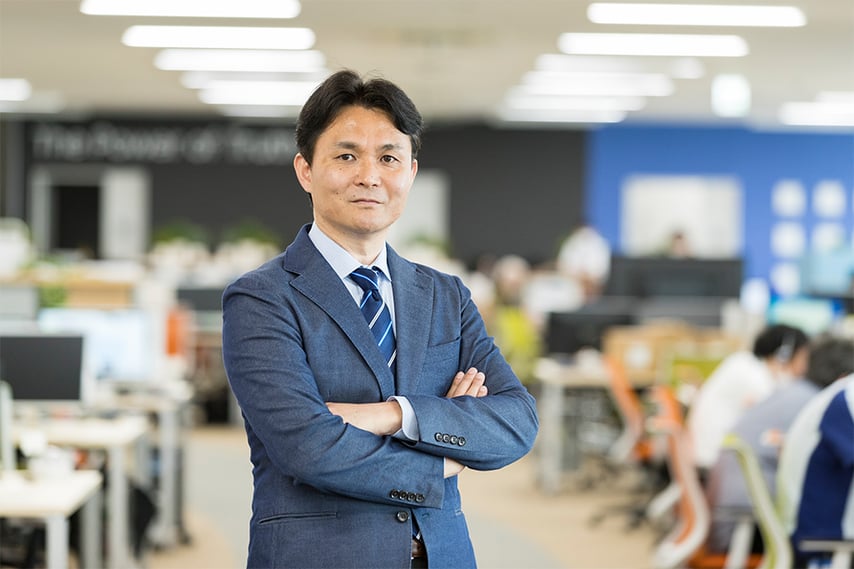
Q. Please tell us about your career to date and your current role at i-PRO.
After joining Panasonic, I was in charge of corporate sales, but I expressed my desire to work overseas, and after transferring at the age of 31, I moved across the UK, Europe, and Singapore. After returning to Japan in 2018, I became the head of sales in Panasonic's security business division and then moved to i-PRO when it was established. Currently, I am in charge of overseas market other than the United States. I supervise the entire workflow: not only sales, but also product planning that incorporates the voices of the local population and coordination with our factory in China.
Q. Regarding the global market for intelligent surveillance, what are the characteristics of each region?
In terms of the overall market layout, half of the demand is in China, followed by ¼ in the United States, and the rest is shared by other regions such as Europe and Southeast Asia. In terms of market share by manufacturers, the growth of Chinese manufacturers has been remarkable, especially in the last decade, with both the first and the second place in market share being dominated by Chinese manufacturers.
The installation of surveillance cameras varies greatly depending on the history and culture of the region. In China, for example, government policy has resulted in the installation of surveillance cameras throughout the city. In Europe, in the case of the United Kingdom, which was once plagued by terrorism, there are many surveillance cameras per capita, while privacy-conscious France has restrictions on surveillance cameras. Japan is well-balanced in terms of both privacy concerns and security, and there is a stable demand.
Q. Each country has different needs. What is the overall evaluation of i-PRO products?
Our cameras are rated highly for their low failure rate, high stability, and maintenance-free performance. Modern surveillance cameras are integrated in various applications, such as video recognition functionalities, but depending on the installation environment, there is a risk of stoppage due to heat or cold, and the risk of failure increases in outdoor environments where the cameras are exposed to wind and rain, which may prevent stable operation.
On the other hand, the i-PRO intelligent surveillance camera system was designed with a wide range of installation environments and conditions in mind, and the cameras are made into products only after thorough tests, so they do not malfunction easily, and the system does not crash. In addition, we have 60 years of experience in image production that has been handed down from the days of Panasonic. Even when the same optical sensor and lens are used, the quality of the images captured by the camera is completely different from that of other companies. We are particularly proud of our commitment to color reproduction, and we are confident that you will be satisfied once you use our cameras.
Localization which improves local satisfaction
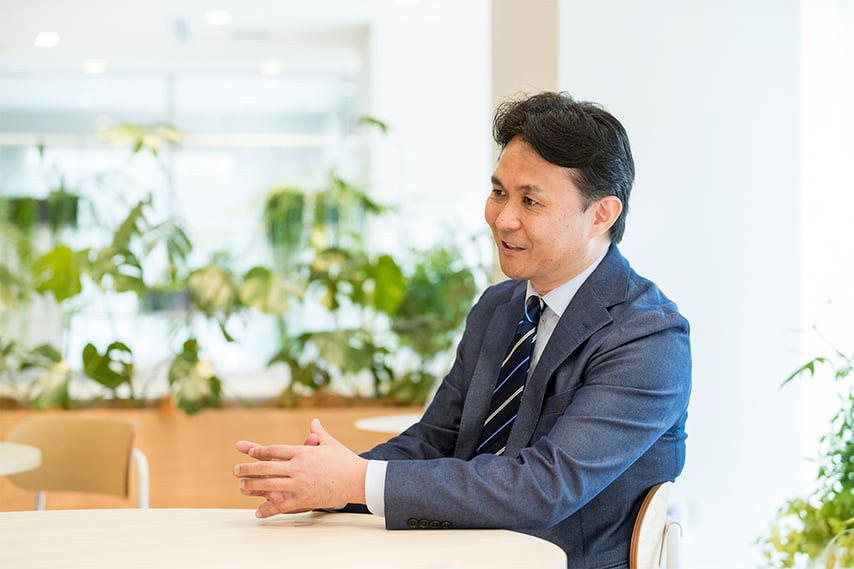
Q. After becoming independent from Panasonic, you started collaborating with various solution providers as a manufacturer. Do you see any changes in product development or sales methods compared to the past?
In terms of product development, we are working to develop products for overseas markets by thoroughly taking into consideration the opinions of overseas users and colleagues. Until now, the approach has been to develop products based on the needs of the Japanese market and make minor changes for overseas markets. For example, Westerners and Asians have a different sense of color, so their taste in image quality and demands are different as well. Therefore, we're trying to change our products to localized products with the idea that it's better to trust the opinions and sensibilities of the local population and make adjustments according to them. In fact, we have already started a new initiative.
Q. What kind of initiatives are you involved in?
In July this year, we launched a network camera with an AI processor. Multiple applications that use deep learning technology to analyze captured video can be installed in this camera, so the camera itself can perform high-load AI processing, which has been difficult to do with conventional network cameras so far. We are working to get local software companies across many countries, to develop video analysis applications, and our Italian partner has already developed 25 applications for us.
When I was in Panasonic's business division, we made everything from cameras to applications in-house, but we felt frustrated that we couldn't satisfy our overseas customers 100% because the specifications we made in Japan were inevitably too Japanese. Because of that, our aim is to provide products that are more localized for the local market with the help of local companies for details such as video colors. This is also a new business opportunity for local software companies and a win-win situation for both parties.
The ability to predict anomalies and a sense of trust in the manufacturer will be required of surveillance cameras of the future
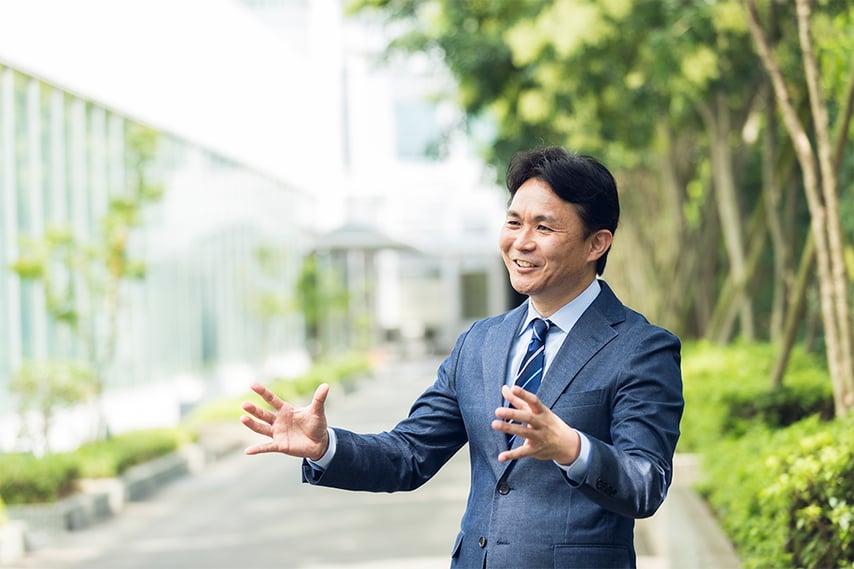
Q. What do you think will be demanded of i-PRO in the future?
In the future, surveillance camera systems will be increasingly required to improve their ability to "predict" crimes and incidents, preventing them from happening. In the past, police officers would stand on the streets and visually detect suspicious persons, but in the future, we will be heading towards a society where surveillance cameras will be able to automatically detect suspicious persons and sound an alert before an accident occurs. A major point of differentiation from other companies in this process will be the utilization of AI technology. While inheriting the high technological skills we have cultivated since the days when we were one of Panasonic's businesses, we will do everything in our power to answer society’s needs, including in-house development and collaboration with local businesses.
There is one more fundamental thing we must not forget. That is the fact that we are dealing with important privacy data. How do we handle security data, which may harbor significant risks depending on the way it is used, in a fair manner? In the future, our trustworthiness as a manufacturer will be increasingly questioned. In order to continue to be a company of choice for trust, we will maintain our top share in the Japanese market while increasing our presence in the global market, so that more and more customers can use our high-quality surveillance camera systems.
Q. Lastly, please tell us about your visions for the future.
This hasn't changed since I was at Panasonic: the enjoyment of working with engineers who have a wide and deep range of knowledge and skills to give shape to society's needs and make them available to the world as new products is something you can only experience while working in a manufacturer. In particular, when something I have commented on myself is commercialized while taking into account global needs and the customer appreciates it, this gives me an irreplaceable sense of excitement. This is what drives me. I want to contribute to society by continuing to manufacture quality products in response to the growing global need for intelligent surveillance systems.


